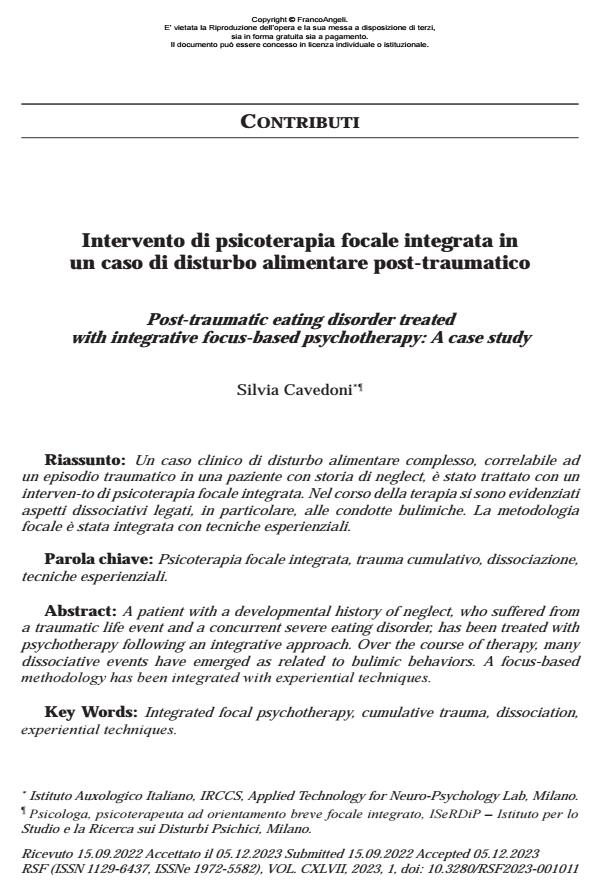Intervento di psicoterapia focale integrata in un caso di disturbo alimentare post-traumatico
Titolo Rivista RIVISTA SPERIMENTALE DI FRENIATRIA
Autori/Curatori Silvia Cavedoni
Anno di pubblicazione 2023 Fascicolo 2023/1
Lingua Italiano Numero pagine 20 P. 159-178 Dimensione file 237 KB
DOI 10.3280/RSF2023-001011
Il DOI è il codice a barre della proprietà intellettuale: per saperne di più
clicca qui
Qui sotto puoi vedere in anteprima la prima pagina di questo articolo.
Se questo articolo ti interessa, lo puoi acquistare (e scaricare in formato pdf) seguendo le facili indicazioni per acquistare il download credit. Acquista Download Credits per scaricare questo Articolo in formato PDF

FrancoAngeli è membro della Publishers International Linking Association, Inc (PILA), associazione indipendente e non profit per facilitare (attraverso i servizi tecnologici implementati da CrossRef.org) l’accesso degli studiosi ai contenuti digitali nelle pubblicazioni professionali e scientifiche.
Un caso clinico di disturbo alimentare complesso, correlabile ad un episodio traumatico in una paziente con storia di neglect, è stato trattato con un intervento di psicoterapia focale integrata. Nel corso della terapia si sono evidenziati aspetti dissociativi legati, in particolare, alle condotte bulimiche. La metodologia focale è stata integrata con tecniche esperienziali.
Parole chiave:Psicoterapia focale integrata, trauma cumulativo, dissociazione, tecniche esperienziali.
Silvia Cavedoni, Intervento di psicoterapia focale integrata in un caso di disturbo alimentare post-traumatico in "RIVISTA SPERIMENTALE DI FRENIATRIA" 1/2023, pp 159-178, DOI: 10.3280/RSF2023-001011